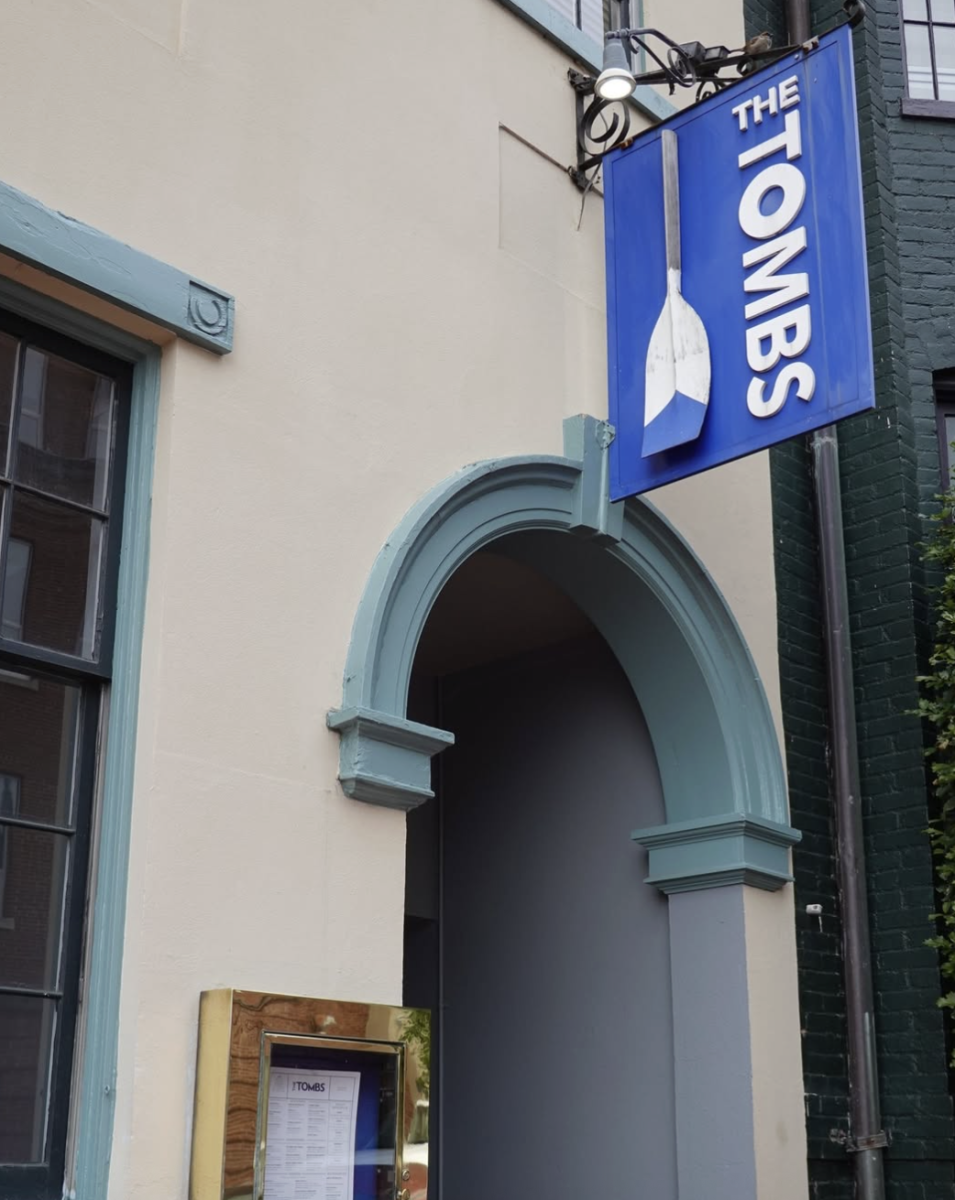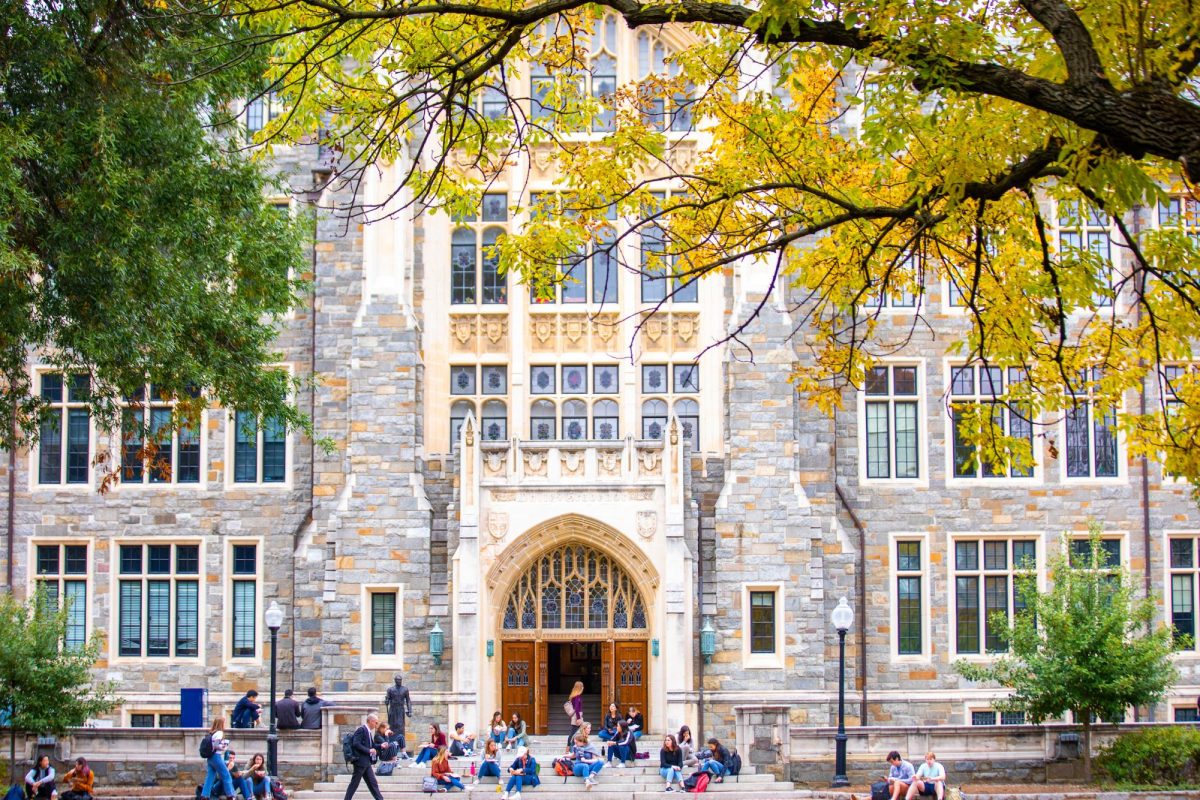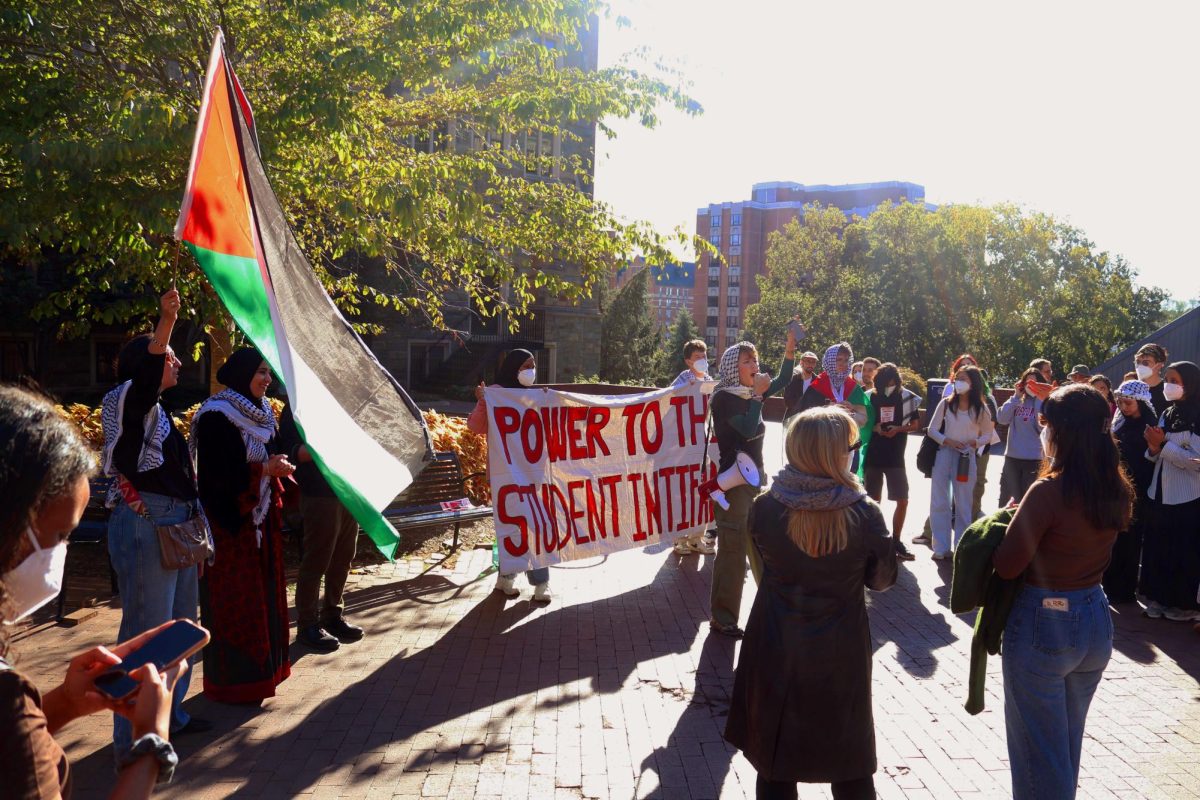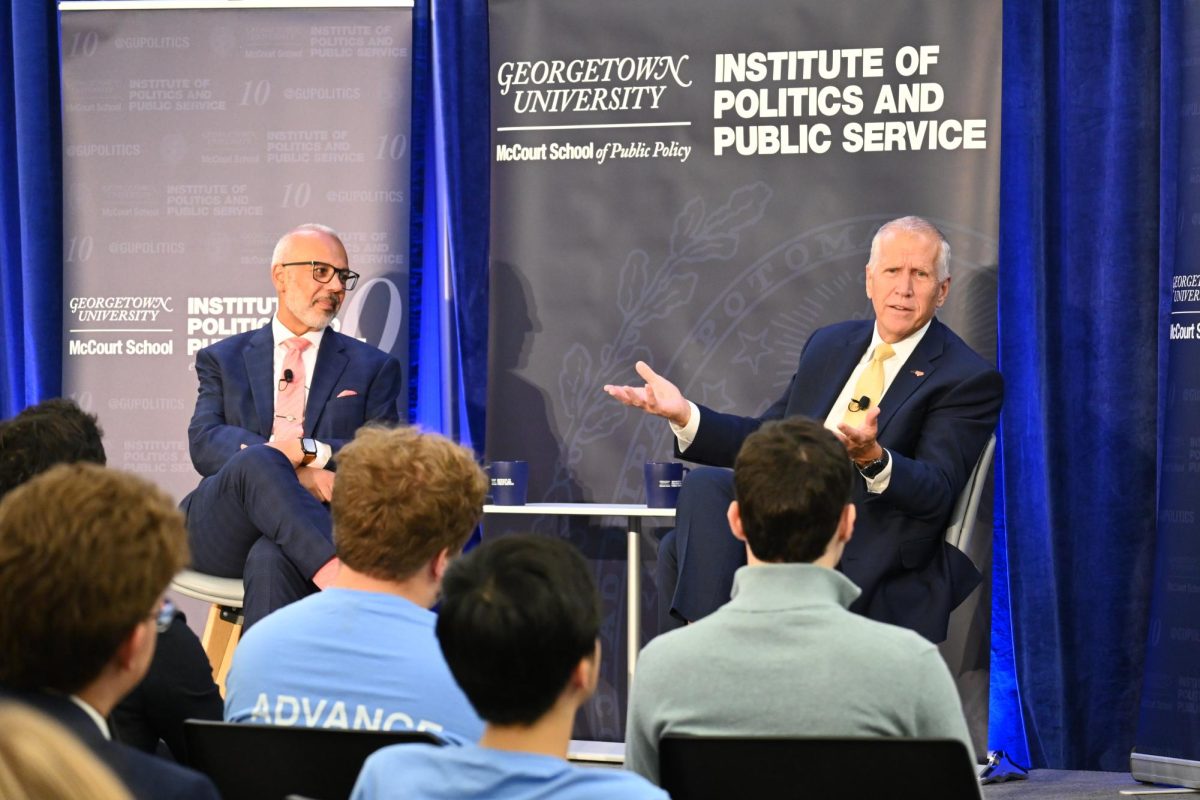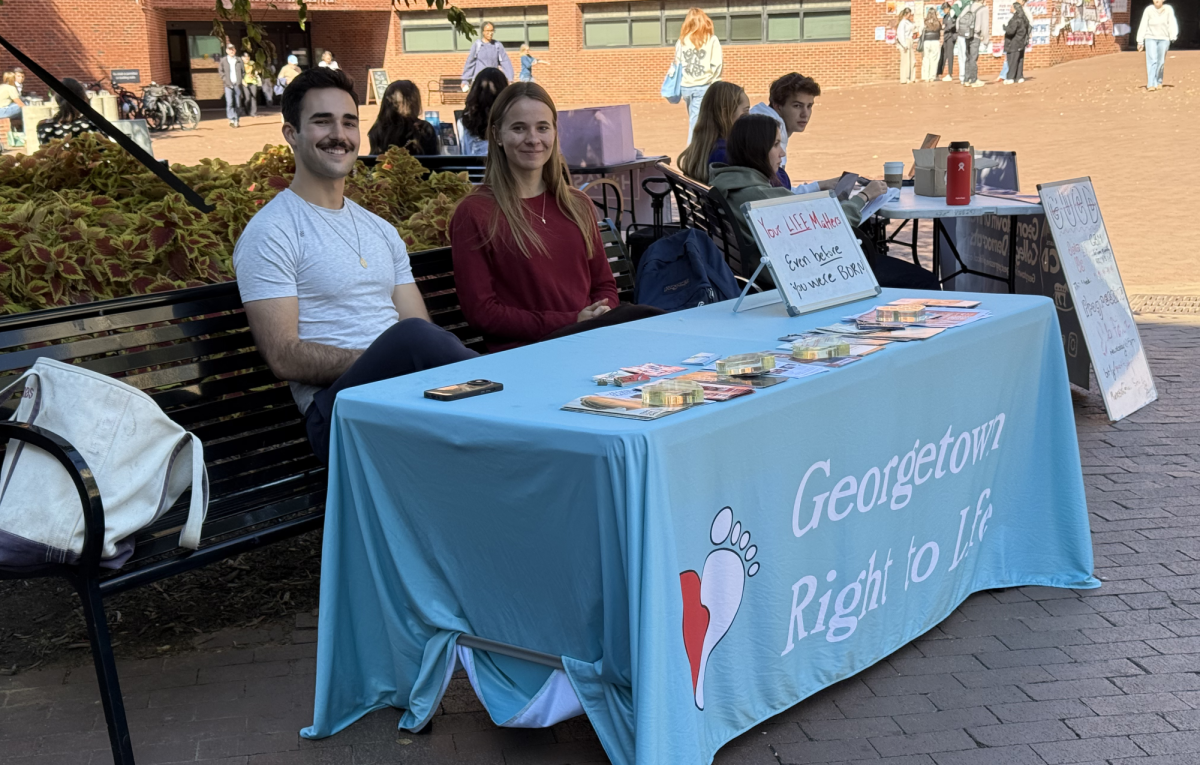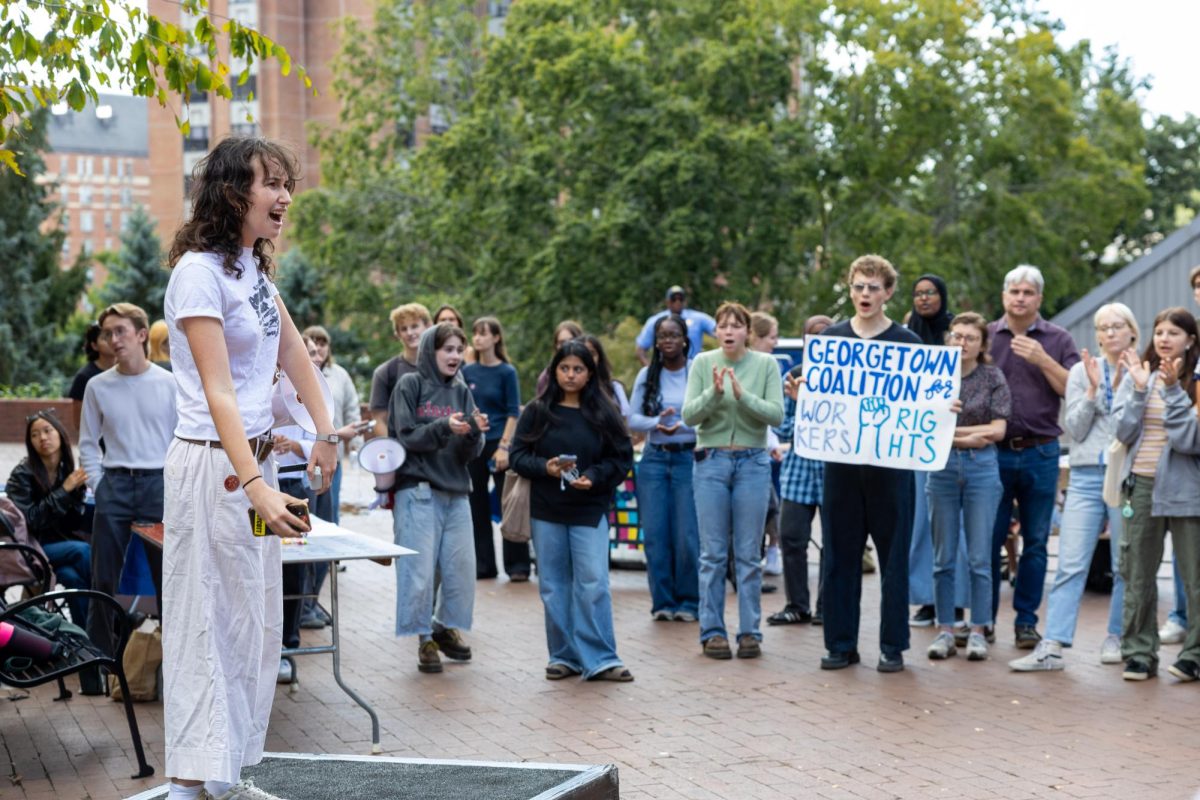The Georgetown Resident Assistant Coalition (GRAC), the union representing Georgetown University resident assistants (RAs), came to one tentative agreement regarding RA scheduling at a Feb. 5 collective bargaining negotiation with the university.
GRAC finished its sixth, seventh and eighth bargaining sessions on Dec. 17, Jan. 15 and Feb. 5, respectively, marking eight total negotiations since the RAs formally voted to unionize April 16, 2024, accepting representation from Local 153 of the Office of Professional Employees International Union (OPEIU). The university and GRAC have tentatively agreed to 15 articles and are currently negotiating seven more.
At a Jan. 15 negotiation session, GRAC and the university tentatively agreed on five articles, including the terms of agreement, the termination and discipline process, RAs’ leaves of absence, staffing ratios and the process of interim community directors.
Sam Lovell (CAS ’25), the interim chairperson of GRAC and an RA in Copley Hall, said this bargaining session was productive because representatives discussed exclusively non-economic articles, despite only coming to one additional agreement.
“We had a very candid conversation. We exchanged lots of language with the university,” Lovell told The Hoya. “This one in particular, there was a really great dialogue happening with the university about why they valued some provisions and why we valued some provisions, and we hadn’t quite had that exchange to the degree that we did yesterday. That was really refreshing.”
A university spokesperson said the university is committed to working with OPEIU as they aid GRAC in negotiations.
“The University values the contributions of Resident Assistants and continues to work in good faith with OPEIU to negotiate a collective bargaining agreement,” a university spokesperson wrote to The Hoya. “We do not comment about ongoing discussions at the bargaining table. Georgetown is committed to continuing to negotiate in good faith.”
The university and GRAC have not yet addressed RAs’ compensation and room and board. GRAC’s proposal hopes to add payment equivalent to minimum wage for RAs.
Ulises Olea Tapia (SFS ’25), the interim GRAC bargaining lead and an RA in Village A, said he expects negotiations on the compensation article by March because it is a high priority for RAs.
“Compensation has always been sort of understood to be last, so that is something that was completely expected,” Olea Tapia told the Hoya.
“I am confident that understanding that the university recognizes the essential nature of our work and of the hard job that we do,” Olea Tapia added. “I would expect the compensation to also reflect that.”
One of the main articles discussed in the bargaining session was an article regarding rehiring RAs between semesters or study abroad. According to Lovell, the university and GRAC are exchanging language regarding the rehire RAs in good standing after a semester off.
“If you’ve been a good RA and you don’t have anything on your record, we thought that you should be able to come back automatically,” Lovell said.
Lovell said the meeting between GRAC and the university shows how each side aims to be a positive partner. He said he expects negotiations to finish by the end of the semester.
“I think that it was a new relationship that we were navigating for a long time and trying to feel out how each of us were at the negotiating table, but I think that we found our step,” Lovell said.
Olea Tapia said the speed of negotiations is promising for graduating seniors like himself because of the opportunity to leave a lasting positive legacy for future RAs.
“I would like all current and future RAs to know that we can do it, that the job that we do is not an easy job and we recognize that,” Olea Tapia said.
Lovell said he believes GRAC and the university are on track to deliver a strong contract for RAs.
“I think it’s proof of what we campaigned on a year ago, which is that unions don’t have to be adversarial,” Lovell said. “We seek not to make it adversarial and instead to merely advocate for people who are trying to serve their campus community.”


